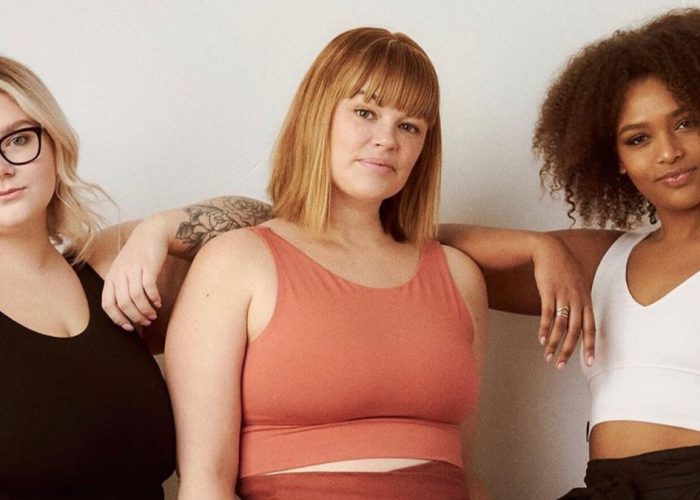A Free Label campaign image.
Photo: Courtesy of Free Label
These are the stories making headlines in fashion on Friday.
Designers are challenging fatphobia in fashion with adaptable garmentsA growing number of brands, including Universal Standard, Mara Hoffman, Stine Goya and Free Label, are creating clothes that can adapt with changes the body undergoes, striving to become more size-inclusive and less fatphobic — and to push the rest of the fashion industry to do the same. Beyond creating less exclusionary clothing, there are also obvious sustainability benefits to creating garments that can continue to be worn by a person as their body changes throughout their life. {Vogue Business}
Allure photographed and profiled Black hairstylists at home during the pandemic”As Covid-19 brought the world to a pause, many professional Black hairstylists returned to this tradition of creating at home,” writes Jessica Cruel for Allure. “The way we do our hair, and the community we create around that tradition, is one of many things that makes Black culture so special.” With this in mind, she and Darian Harvin profiled nine Black hairstylists during the past few months of quarantine. Beyond sharing their philosophies about hair as self-care and connection to Black culture, the stylists — including Vernon François, Nai’Vasha Johnson, Lacy Redway, Ursula Stephen and Nikki Nelms — share intimate looks at their family lives and how the pandemic has impacted them, along with beautiful portraits photographed from a safe social distance outside. {Allure}
Models open up about the importance of mental healthIn a new video for Vogue, top models — including Adesuwa Aighewi, Kaia Gerber, Adut Akech and Paloma Elsesser — share their candid thoughts on the importance of mental health, particularly as it pertains to succeeding in the fashion industry. “Imagine the whole world judging every pore on your body — who trains you to deal with that?” says Aighewi. “As a model, you have this separation of self [where] you don’t even belong to yourself anymore.” {Vogue}
The problematic history of the term ‘dreadlocks'”This idea of assimilation over authenticity is something that Black women (and men) around the world have had to contend with as we face continued discrimination against our hair — one of many tactics that has long been used to dehumanize Black people,” writes Gabrielle Kwarteng in an essay for Vogue about her own experience wearing locs and why she doesn’t refer to them as “dreadlocks.” The term has a problematic history: “The British, who were fighting Kenyan warriors (during colonialism in the late 19th century), came across the warriors’ locs and found them ‘dreadful,’ thus coining the term,” explains hair historian Lori L. Tharps in the piece. “I refer to my hairstyle as locs, having dropped ‘dread’ altogether given its negative connotation,” writes Kwarteng. {Vogue}
Tracy Reese shares her perspective on how fashion can become truly anti-racistDesigner Tracy Reese has been fighting to dismantle racism in fashion throughout her career. In a new interview with Elle, she shared more about what it would take for the industry to become truly anti-racist: “[Fashion] has to start celebrating its sources of inspiration instead of just appropriating and moving on to the next trend… Instead of taking someone’s voice, we [need to] invite them into the circle, let them express their own true voices, and celebrate them.” She is also working with Makers United, an initiative of nonprofit organization Nest, to grant wider access to resources for BIPOC and immigrants. {Elle}
Want more Fashionista? Sign up for our daily newsletter and get us directly in your inbox.read more
Must Read: Designers Are Challenging Fatphobia in Fashion, ‘Allure’ Profiled Black Hairstylists at Home During Quarantine


